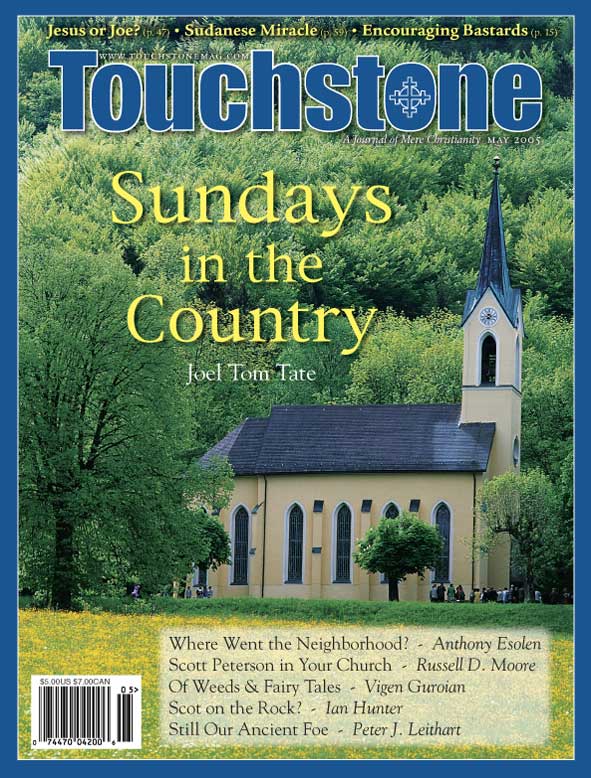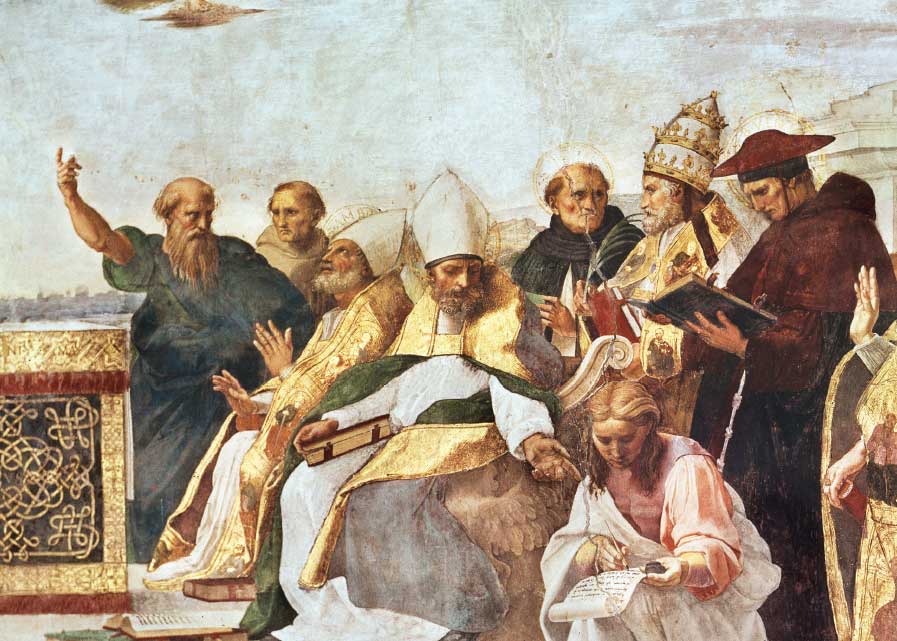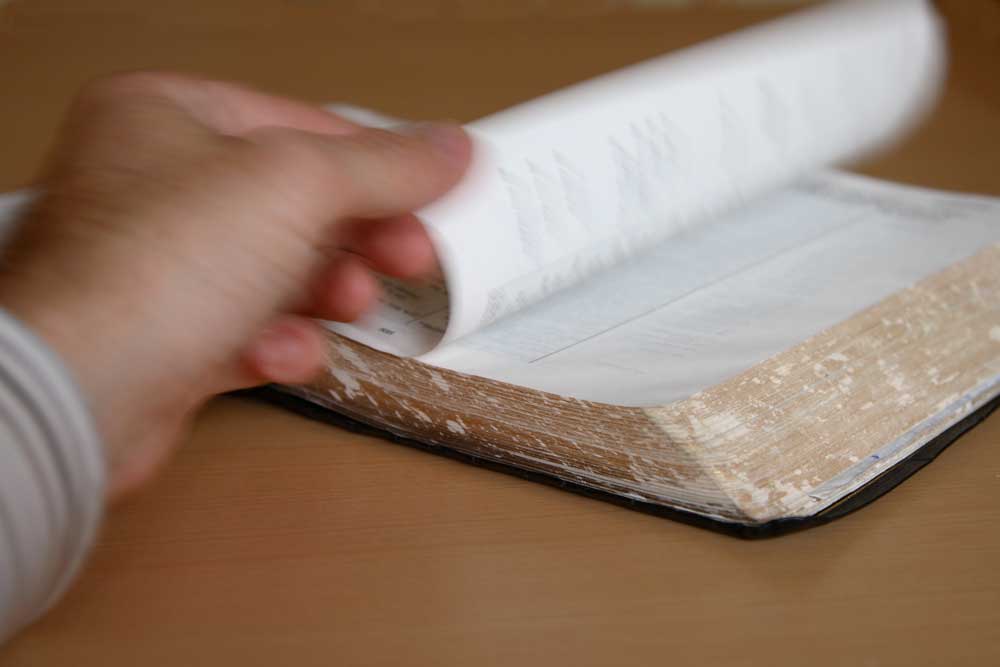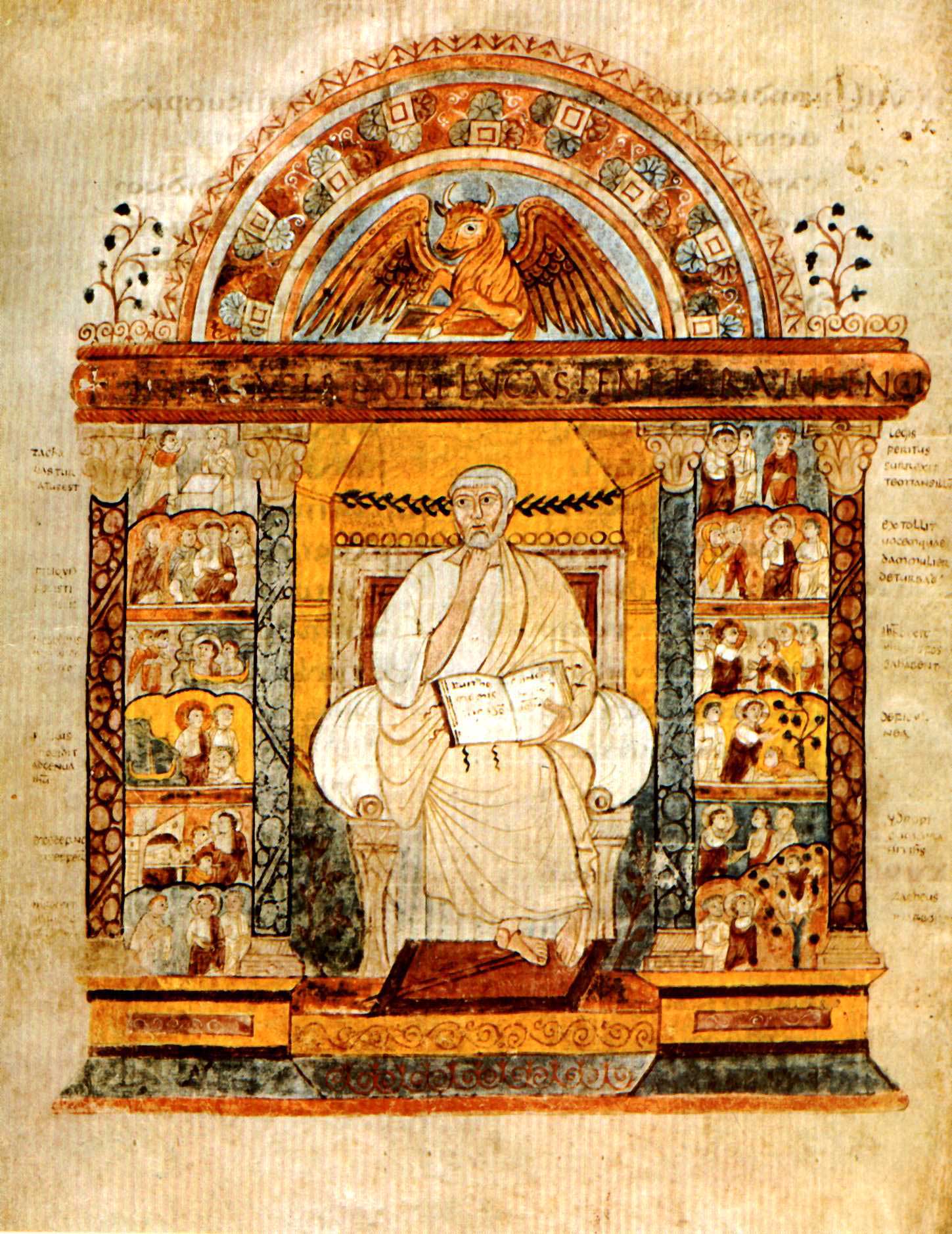Editorial
Nations in the Balance
The Lord of History Will Have the Final Word by Patrick Henry Reardon
It is reasonable, we suppose, that those engaged in making history on a large scale should also be concerned how history itself will judge them. The ancient Greeks (at least in the Homeric epics) were preoccupied with what they called kleos, that form of fame that refers to the things that men will say of one, both in the present and in the future, and some historians (Douglass Adair, for example) have argued that the Founders of the American nation had a similar preoccupation.
Unless we are mistaken, nonetheless, this concern with the judgment of history seems to have become more widespread, deliberate, and explicit in recent days (as witnessed, for instance, in the media’s coverage of presidential libraries). With a view to addressing this preoccupation with the judgment of history, we believe there are three points that call for consideration.
History’s Approval
First, unless the question of historical judgment is raised to a higher, more transcendent plain, such a preoccupation may lead only to various “public relations” efforts, distinguished simply by their extension into the future. We confess a measure of uncertainty that leaders who spend much of their time analyzing the daily polls and making their decisions on the basis of them, are in a good position to think rationally about the judgment of generations still to come.
It is bad enough, though understandable, that some men arrive at their decisions largely by analyzing an applause meter. We hardly know what to think about those who consult the applause of children not yet conceived.
For this reason, we are heartened by the response of President George W. Bush, who was recently asked how history would judge the merits of his presidency. He answered that he did not know, remarking further that historical judgments themselves tend to waver through the course of time, and suggesting that a preoccupation with matters so uncertain might prove to be nothing more than a distraction from history’s call to duty.
This is a sane assessment of the question. The judgment of history lies beyond our ken. Who among us can say how those who come after us will assess our lives and judge our choices? Our descendents may be wise men, but perhaps no wiser than ourselves, and for all we know, they may prove to be fools. Anyway, it is reckless and irresponsible to base important decisions on the uncertain judgment of generations not yet born.
The resolute, prudent pursuit of the moral law itself, not educated guesses about the judgment of history, provides the safest, most reliable guide for all men, including those charged with making those momentous decisions that most affect the destinies of peoples and nations. Consequently, we are leery of any leader governed mainly by anxiety for what history may have to say of him. Indeed, we sincerely worry for such a man, fearing not so much, perhaps, that he will lose his soul, but rather that he may simply lose track of it.
Contrariwise, we feel greater confidence in leaders who seek to be governed by the eternal, unchanging moral law than in those who endeavor to carve a favorable niche for themselves in the memories of men who never knew them.
History’s Judge
Second, it is necessary for us as Christians to insist that history itself is no safe judge and certainly no final judge. According to Holy Scripture, the verdict of history is not the final word on the destiny of the nations. The very opposite is true—history itself will be judged.
Beginning with Amos in the eighth century before Christ, and going all the way to the Book of Revelation, it is the consistent teaching of the prophets that all the nations will be judged by the same God who made them. Thus, at the risk of sounding dramatic, we ourselves profess that for three transgressions of Damascus and for four, God will not revoke the punishment, because they threshed Gilead with threshing sledges of iron. Nor, we further contend, will Gaza go unpunished for three transgressions and for four, because they carried a whole people to deliver them to Edom. And so on through that ancient list.
The voice from on high repeatedly pronounces to the nations through the prophetic pen, “I will not revoke the punishment.” Those who make history will not be judged by history, but rather by the Lord thereof, who threatens to send a fire upon Teman, devouring the strongholds of Bozrah, and kindle a flame in the wall of Rabbah, the house of Hazael, the palaces of Kerioth, and the strongholds of Ben-hadad. His will be the final say.
History’s self-evaluation, then, is of small account, because “When the Son of Man comes in his glory, and all the angels with him, he will sit on his throne in heavenly glory. All the nations will be gathered before him, and he will separate the people one from another as a shepherd separates the sheep from the goats.”
The scene of the divine assessment provides the proper context in which to raise the notion of historical judgment to that higher, more reliable plain, transcendent to the plans of man. Those who worry much about the judgment of history seem to suspect, correctly, that history’s verdict, like every other human adjudication, is somewhat open to finagling and chicanery. However, the opening chapters of Amos and closing scene of Matthew 25, near the beginning and the end of biblical prophecy, indicate a judgment not so obviously amenable to man’s control.
Biblical Judgment
Third, the nations, when at last they are judged, will all be judged by the same standards. It seems important to insist on this point, because there prevails today a directly opposite view.
Indeed, much contemporary writing, such as our contemporary college textbooks of sociology and cultural anthropology, takes as axiomatic that each nation and each race should be judged according to the prevailing norms of its own culture. It is today commonly presumed that there are no abiding, transcendent, unchanging norms by which all the nations of the earth are rightly to be evaluated.
The biblical literature allows of no moral relativism based on cultural standards. On the contrary, the differences between sheep and goats are discerned by applying exactly the same moral rules across the board.
Thus, Phoenicians and Carthaginians will not be able to appeal to their particular cultural norms as a defense for child sacrifice. Citizens of the Roman Empire will not be permitted to plead the rules of their culture to justify their tolerance for homosexuality. Contemporary Africans who conduct female genital mutilation will not be excused by the inherited standards that encourage that practice.
And the Florida court system, let us insist, will be hard pressed to rationalize its intended murder of Terri Schiavo by starvation and dehydration. (Just what is unclear about “I was hungry and you gave me no food, I was thirsty and you gave me no drink”?)
It is understandable, in short, that men should want to be “on the side of history,” but it seems far more important that we strive to remain on the side of God. History itself will have enough to answer for. •
Patrick Henry Reardon is pastor emeritus of All Saints Antiochian Orthodox Church in Chicago, Illinois, and the author of numerous books, including, most recently, Out of Step with God: Orthodox Christian Reflections on the Book of Numbers (Ancient Faith Publishing, 2019).
bulk subscriptions
Order Touchstone subscriptions in bulk and save $10 per sub! Each subscription includes 6 issues of Touchstone plus full online access to touchstonemag.com—including archives, videos, and pdf downloads of recent issues for only $29.95 each! Great for churches or study groups.
Transactions will be processed on a secure server.
more from the online archives
calling all readers
Please Donate
"There are magazines worth reading but few worth saving . . . Touchstone is just such a magazine."
—Alice von Hildebrand
"Here we do not concede one square millimeter of territory to falsehood, folly, contemporary sentimentality, or fashion. We speak the truth, and let God be our judge. . . . Touchstone is the one committedly Christian conservative journal."
—Anthony Esolen, Touchstone senior editor










